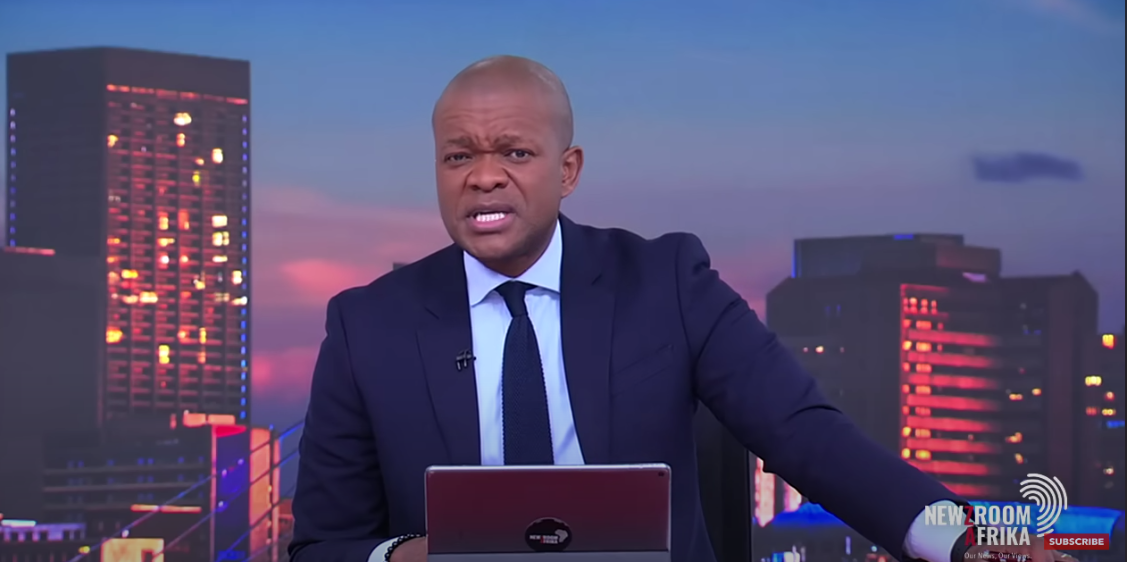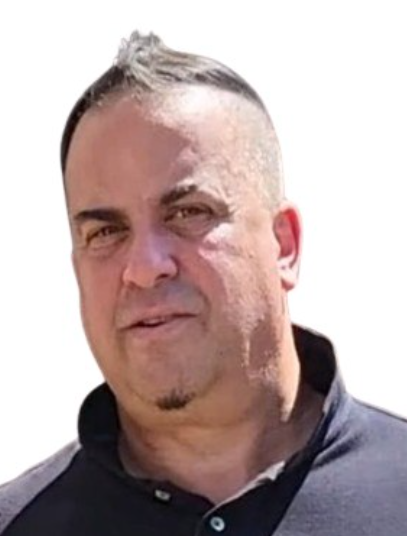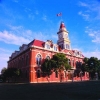Source: https://www.icij.org...enberg-belumbu/ 15th April 2024
Not much happens in Bulembu these days. The little company town grew around an asbestos mine that began operations in 1939. By the 1960s, Havelock Mine was one of the world’s biggest producers of the lethal mineral, but in 2001 the mine abruptly shuttered amid a plummeting demand for asbestos. Most of Bulembu’s inhabitants left in search of work.
Bulembu sits in a green valley surrounded by timber plantations in a remote part of Eswatini, a tiny southern African kingdom of 1.2 million bordered by South Africa and Mozambique. Known as Swaziland until its king unilaterally changed its name in 2018, the country is ruled by the last absolute monarchy in Africa. Given the lack of businesses, the town in 2019 was a strange place for a bank to set up shop, in a simple one-story building with white walls and a green roof — the colors of Farmers Bank’s corporate logo. Inside, it is like any other bank: shiny imitation marble floors, a teller counter and a neat row of chairs, though they are still wrapped in plastic. The Farmers Bank employees in Bulembu and at its other branch in Manzini — Eswatini’s commercial center — arrive for work each weekday morning, but there is little more to do than water the potted plants and wait. The staff say they cannot authorize any transactions. Clients cannot yet open accounts, and the staff cannot issue loans.
Farmers Bank was supposed to rival the big, established high-street banks operating in Eswatini — mostly South African banks — and launch over 200 ATMs in its first 12 to 18 months. But it’s essentially a bank in name only. For the past few years it has been engaged in a tug-of-war with the regulator, the Central Bank of Eswatini, over its banking license.
Leaked documents capture multiple contradictions that played out in the Farmers Bank saga between a central bank designed to be independent and ensure financial probity and an opaque and unaccountable monarchy. They tell the story of how the CBE was alarmed by a litany of discrepancies in Farmers Bank’s application for a banking license, and in trying to put the brakes on the process, the CBE ran up against the political interests of King Mswati III and his associates.
As part of the project called Swazi Secrets, this investigation by the International Consortium of Investigative Journalists reveals that Eswatini’s finance minister, Neal Rijkenberg, was unusually involved with the bank, placing him in a potentially serious conflict of interest. In fact, the bank’s very location in Bulembu — which sits on land owned by a Christian nonprofit organization called Bulembu Ministries that Rijkenberg founded and once chaired — is one of several indications that he is linked to the bank and its Canadian owners.
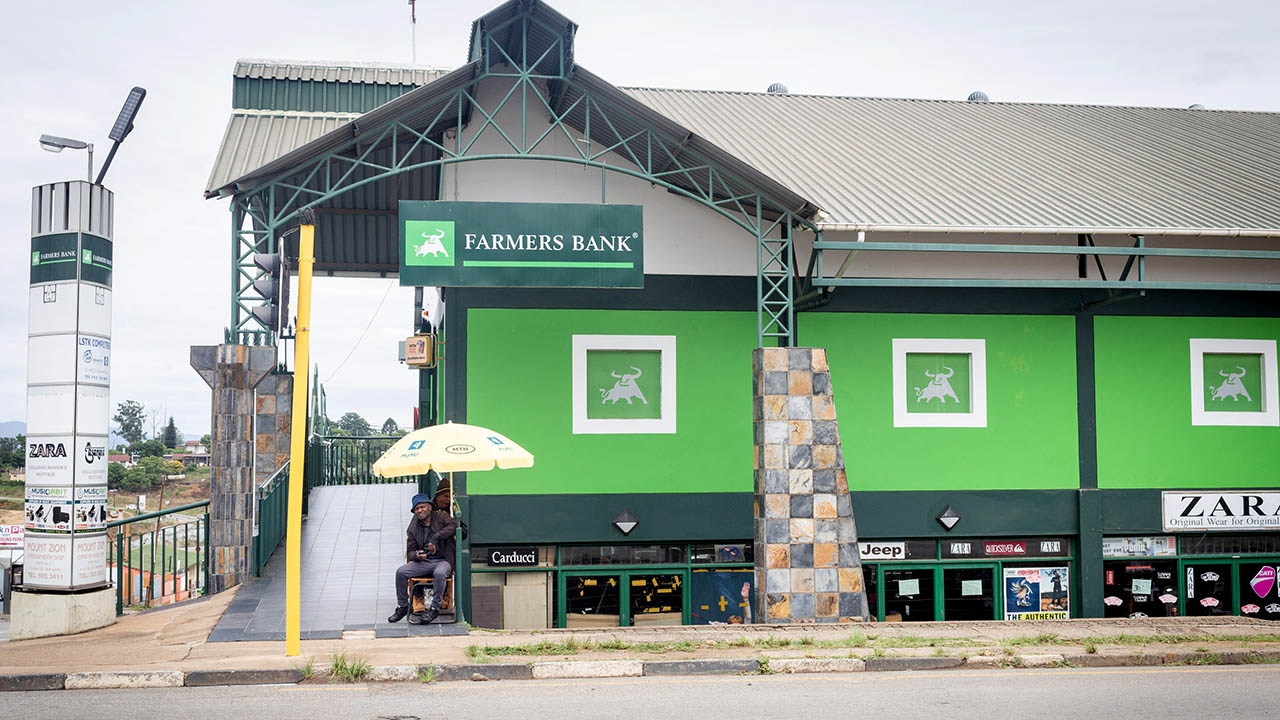
The Farmers Bank branch in Manzini, Eswatini’s commercial center. Image: Yeshiel Panchia / ICIJ
The documents comprise more than 890,000 internal records from the Eswatini Financial Intelligence Unit obtained by Distributed Denial of Secrets, a nonprofit devoted to publishing and archiving leaks, which shared them with ICIJ. ICIJ coordinated a team of 38 journalists from 11 countries to investigate illicit or suspicious financial flows in southern Africa and beyond.
The EFIU, an independent statutory body intended to “provide financial intelligence that safeguards the local and international financial system” from money laundering, terrorism financing and other illicit activity, operates in Eswatini’s capital Mbabane and formed when the kingdom passed the Money Laundering and Financing of Terrorism Act in 2011, which was designed “to criminalise money laundering and suppress the financing of terrorism.”
The EFIU obtains so-called suspicious transaction reports, or STRs, from banks and financial institutions and uses that information to provide financial intelligence to Swazi and international authorities. Its task is to identify, monitor and investigate suspicious financial transactions, but its investigative powers are tightly circumscribed, and in most cases it cannot subpoena witnesses, conduct interviews or gather intelligence. Although the banks and EFIU flag countless transactions as “suspicious,” this does not show proof of wrongdoing but reflects suspicion of potential illicit activity.
The EFIU has regularly identified potentially serious crimes involving millions of dollars of possible illicit transactions. The subsequent investigations by the police and other authorities, though, have tended to stall and rarely ended up in successful prosecutions. As Eswatini’s National Risk Assessment — a high-level government review of the country’s exposure to money laundering — noted: “Even though safeguards exist in law, politicians may interfere with [financial crime] investigations for example. … Although [financial crime] investigators are well protected in terms of the legal framework, in practice they are not well protected against these political pressures.”
In Eswatini, independent institutions such as the EFIU and the central bank co-exist in an uneasy relationship with the monarchy. “At the most basic level if you’re not going to have a financial intelligence unit you are going to be gray-listed by FATF [the Financial Action Task Force, the global anti-money laundering watchdog],” says Holden. “And that has all sorts of knock-on effects in terms of … whether you can get investment into your location.” Holden says there are pressures compelling countries to establish institutions like the EFIU and ensure a degree of central bank independence, even in an absolute monarchy.
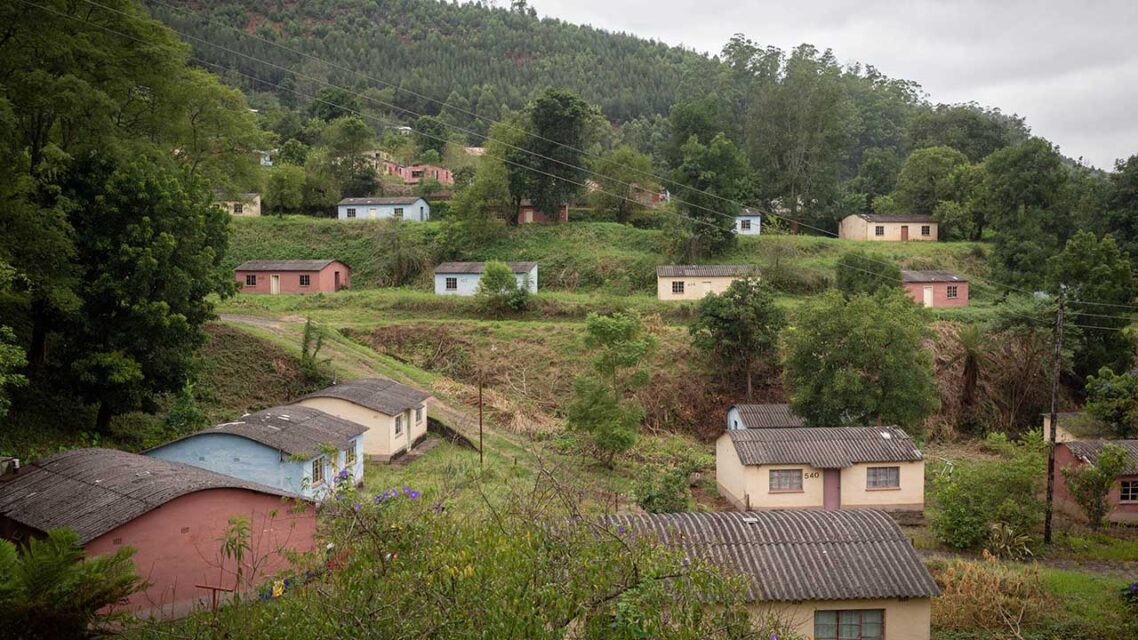
The town of Bulembu is nestled in rolling hills near Eswatini’s border with South Africa.
Image: Yeshiel Panchia / ICIJ
‘A royal command,’ a litany of errors
Back in August 2009, real estate developer John Asfar was facing financial trouble as the owner of Travellers Inn, one of the largest hotel chains in British Columbia, Canada. Travellers Inn was on the verge of bankruptcy, with creditors demanding $54.3 million. Asfar told local media that he had a plan to sell off some of his properties to settle with creditors and would offer them “100 cents on the dollar.” He said he had had enough of Canada’s government and tax system and would be moving to Africa to help the poor and orphans. The following month, Travellers Inn filed for bankruptcy.
Ten years after the demise of Travellers Inn, Asfar was involved in setting up a branch of Farmers Bank in quiet Bulembu on the border with South Africa, where there is no public transportation, no gas station and the nearest town is accessible only by driving 11 miles on a rough dirt road.
The thought of a new bank opening in Bulembu provoked the curiosity of local media. One journalist who traveled to the town asked in an article: “what is a bank doing in the sleepy town with virtually no activity to attract banking business?”
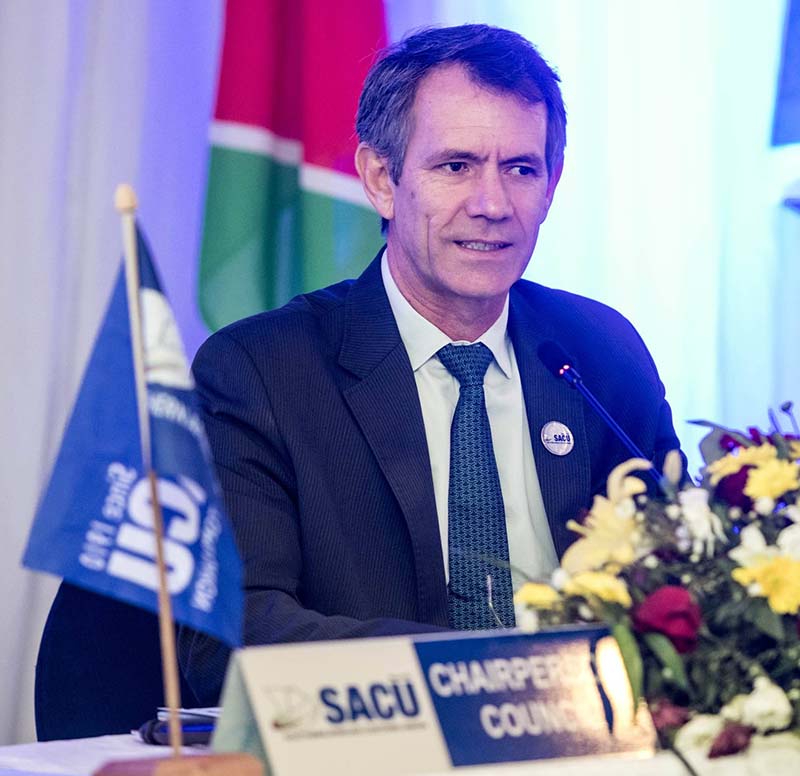
Eswatini Finance Minister Neal Rijkenberg. Image: Eswatini Government (via X.com)
By then, Bulembu was already closely associated with Rijkenberg, who was at the time a prominent businessman in the forestry industry. In 2004, the town had been effectively taken over by the Bulembu Development Corp., for which Rijkenberg was a director and shareholder. When the corporation’s plans to rehabilitate the town and attract business fell through, the shares in the holding company that owned the property were transferred to Bulembu Ministries — the Christian nonprofit founded by Rijkenberg. With the backing of Canadian donors, Bulembu Ministries aimed to breathe new life into the town by setting up social enterprises and an orphanage.
A born-again Christian and ardent believer in the free market, Rijkenberg is also the chairperson of Silulu Royal Holdings, a private company established by the king and registered to the monarch’s office.
After the king transferred about 37,000 acres he held in “trust” for the benefit of the kingdom’s people to Silulu, ordinary citizens evicted from the land accused him of “land grabbing.” Ostensibly, the transfer was to widen access to small-scale Swazi (as the people of Eswatini are known) farmers, but instead the land has been leased to commercial farming operations, with the profits going to the royal company.
The origin of Farmers Bank, however, starts before Rijkenberg was appointed finance minister in late 2018, and there were signs that the bank was beginning the process to enter the Eswatini market in late 2016 or early 2017. This finding is from a 2022 report by the New York-based financial and risk advisory firm Kroll, which was commissioned by the CBE to review Farmers Bank’s application for a banking license. The confidential report was obtained by ICIJ’s South African partner, OpenSecrets.
According to the Kroll report, an unnamed CBE official said in an internal email that he received a request “in late 2016 or early 2017” from someone named Sikelela Dlamini to meet with “acquaintances of one of the Princes” about the banking license application process. The official believed — though could not confirm — that the request concerned Farmers Bank, the report says.
On July 14, 2017, Majozi Sithole, the governor of the CBE, sat down for a meeting with then-Minister of Finance Martin Dlamini, the minister of agriculture and unidentified businesspeople who wanted to set up a bank in the kingdom. There were early indications of high-level interest in the venture when Sithole wrote in an internal email that he was given a “royal command” from the king to attend the meeting, the Kroll report notes.
As the last remaining absolute monarch in Africa, King Mswati III holds veto power over all branches of government and is constitutionally immune from prosecution. The royal family has interests in various facets of Eswatini’s economy and grabs property, shares and other assets seemingly at will. Critics and rights organizations allege that nepotistic appointments of royal family members and associates to board positions at large private firms and government-owned entities is the norm.
“When we talk of the Swazi economy we can say the king himself is the economy, because Swaziland is emblematic of a country where the entire economy is actually captured by royal interests,” said one Swazi human rights activist who asked not be named for fear of retribution.
Those in the king’s favor operate with impunity, say rights groups like Amnesty International. King Mswati III and his large family — whose size is a secret but said to be 11 wives and more than 30 children — have a reputation for flaunting their lavish lifestyles, which detractors of the monarchy say shows a callous disregard for the suffering of his subjects, who mostly live in impoverished rural areas and struggle to find work.
On the day of the meeting Sithole attended at the king’s instruction, Farmers Bank submitted an application for a banking license. Over 500 pages long, it contained a litany of errors, discrepancies and what looked to be questionable audited financial statements, according to the Kroll report. ICIJ’s investigation found that names of proposed executives were misspelled, their roles were mixed up and the statements incomplete.
Farmers Bank also said in its application that it was preparing to move into a glitzy four-story office building in George, South Africa, which it said would be called the Worldwide Corporate Center and would house “one of the most technologically advanced & largest Boardrooms in Africa.”
But that building, under construction at the time, was owned by South African property company Dynarc, via a related company. Dynarc’s financial director, Vanessa Blom, told ICIJ that Equity Check Capital, a company that listed John Asfar’s brother as its sole director, was going to lease a large portion of the building. Blom says Dynarc mostly dealt with John Asfar and that neither Equity Check nor Farmers Bank ended up moving into the building. Dynarc obtained a judgment against Equity Check for breach of contract, says Blom, but her company has not been able to contact the Asfars.
In over 100 pages, the Kroll report corroborates the CBE’s concerns about Farmers Bank’s application for a commercial banking license that the central bank initially rejected in late 2017. But as the report shows, the CBE came under political pressure to walk back its decision.

King Mswati III in April 2018, announcing that he will change Swaziland’s name to the Kingdom of Eswatini, with immediate effect. Image: Maximum Exposure PR / Shutterstock.com
A finance minister’s mysterious connection
In May 2018, according to the Kroll report, then-finance minister Dlamini informed the CBE that the king had ordered an investigation into its licensing process and its “reluctance” to issue a license to Farmers Bank, despite the errors and inaccuracies of the application. ICIJ could not confirm if that investigation happened or, if it did, what the outcome was. But in September of that year, another “royal command” directed the central bank to grant a full commercial license to Farmers Bank, the report shows. The CBE complied, though the approval was subject to conditions, including that Farmers Bank submit additional disclosures about the source of its seed capital. The Kroll report also contends that throughout the application process, Farmers Bank was evasive about the background and role of John Asfar, who founded the bank with his brother Alexandre. The two are sons of Egyptian-born real estate developer Najib Asfar, who died in 2011.
The CBE had “concerns around the transparency of beneficial ownership and control of Farmers Bank and connected companies,” the report says. Those concerns “increased due to the involvement of J. Asfar.” John Asfar was a key player in the Farmers Bank matrix. He was a director of the bank and a director of the company that owned all of its shares, New Zealand-registered Worldwide Capital Corp. Ltd., as well as that company’s owner, Tetrillion Corp., which was registered in Canada. John Asfar was also a director in, and had control over, an Eswatini-based company, Pentillion, which would hold Farmers Bank’s reserves in silver bullion. Pentillion was “outside of the immediate Farmers Bank corporate structure,” but its “financial operations also appear to overlap with those of Farmers Bank” and it made monthly payments to the bank’s staff, the report says.
Yet Farmers Bank downplayed Asfar’s involvement in the bank and claimed that his role was merely to “set up the bank,” according to the Kroll report. “Such a statement suggests that his role does not extend to involvement in the ongoing operations of Farmers Bank once it had been incorporated,” the report reads. “However, in respect to Pentillion alone, J. Asfar is intricately involved in the operations of this company and also in the management of Farmers Bank’s most significant asset, the silver bullion.”





